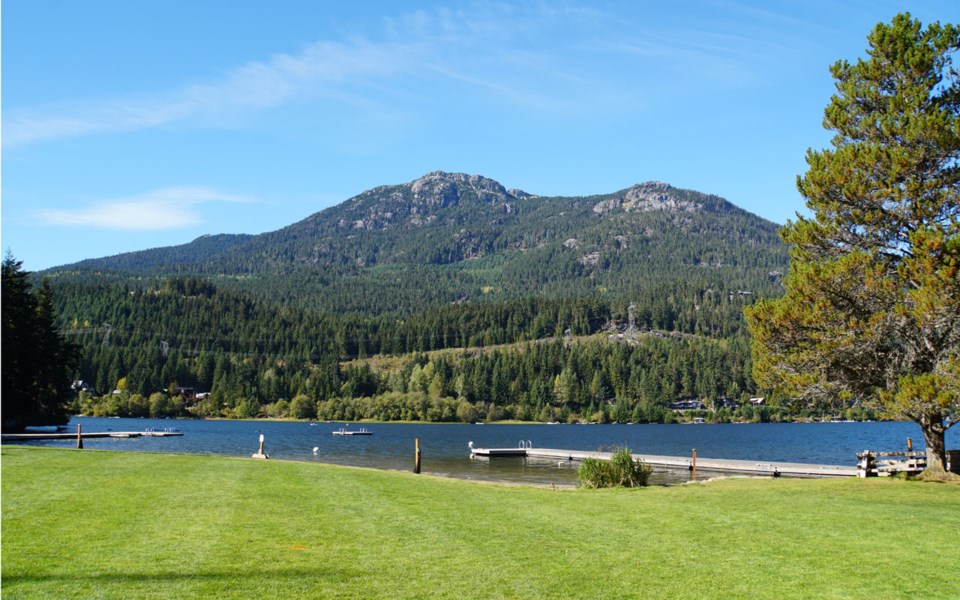Given the state of our local parks over the weekend and the clearly “inadequate” parking provided for them, there can be little doubt that Whistler is back as a No. 1 destination to visit—COVID-19 or not.
To be honest, it was actually alarming here last weekend, from the bumper-to-bumper traffic coming to town on Saturday (backed up from Lions Bay all the way up) to the overflowing parks—and their associated packed parking lots—the teeming trails, and the line-ups into stores serving food.
And nary a mask in sight, for the most part, in line-ups or otherwise.
As I’ve said before, walking parts of the Village Stroll was impossible to do in a physically distanced way due to the crowds of people at certain times of the day. We want visitors to come, but we want them to feel safe doing so and having such a free-for-all vibe is not the way to do this. Even grocery stores were busy and again, masks were the exception, not the rule. Is it time for food shops to make masks mandatory when a threshold of customers is reached? (Of course, some can’t wear them and that’s just fine.)
B.C. is fully entering the next wave of COVID-19 now with new cases in the double digits almost every day—and we’ve had cases in the corridor, too. Right now, people in their 50s have the highest number of cases here, but across Canada, it’s people in their 20s who are getting coronavirus in greater numbers—I guess they think they are immune as they socialize?
It’s totally understandable that people are flooding out of cities in the Lower Mainland to get into big spaces, just as provincial health officer Dr. Bonnie Henry has suggested. But I’m not sure our local park infrastructure can cope with these daily visitors in these numbers on weekends. Clearly I am not alone thinking this as Council, at its regular meeting July 21, directed staff to address the parking challenges around municipal parks.
Our park garbage containers were overflowing last weekend. Thank goodness for community-minded businesses like Backroads Whistler, which responded to social media posts on the garbage situation at night at Lakeside Park went and dealt with it themselves. Let’s not forget we are a Bear Smart town.
And for heaven’s sake, can we please slow down on the weekends along the Valley Trail? It’s now effectively a second highway for bikes and scooters of every shape and speed and type—many fully motorized (I thought that was banned?). It’s frightening trying to take a walk, as one feels it is just a matter of time before you are mowed down by hellhounds on wheels. It’s not a racetrack!
Sorry if I sound exasperated, but I’m not sure the community had mentally prepared itself for these weekend onslaughts.
And it’s not just Whistler. Every park in West Vancouver, all the way up the Sea to Sky Highway to Pemberton was full—no parking except along highways and byways.
Even the closed-off entrance to Garibaldi Park had parked cars there. We have heard that the park (and perhaps Joffre Lakes, too) might reopen using a free day-use pass system. While the crowds heading into the park are a concern, the province needs to address the opening of these spaces soon. It can’t spend $10 million on a campaign to tell British Columbians to get out and travel to places like the Sea to Sky corridor and Whistler and then keep large provincial parks closed. (Garibaldi is a 194,676-hectare park that includes 90 kilometres of hiking trails.)
“The pandemic has shown that parks and nature are a part of our healthcare system,” Tori Ball, a campaigner with the Canadian Parks and Wilderness Society told the Vancouver Sun recently. “We saw a full closure of B.C. provincial parks right when people were needing safe spaces to get outside. I do think underfunding was the cause of that.”
Ball said B.C. provincial parks receive about $3.50 in government funding per hectare of land, compared to $30 per hectare for national parks.
There can be no denying that the provincial government has underfunded parks for years. Now is the time to invest in them when they are needed for respite from the pandemic and in recognition of the incredibly important role nature plays in our social and economic fabric.
BC Parks is one of the world’s biggest and most diverse park systems, with 1,035 provincial parks, recreation areas, protected areas, conservancies and ecological reserves covering more than 14 per cent of the province’s land base.
We want visitors to Whistler to feel our wide-open spaces and enjoy nature—that is what will bring them back.
What will keep them away is highway driving at a standstill due to choke points, parks at standing room only, and crowds where COVID-19 can’t be avoided.
Let’s sharpen our pencils as we plan tourism in pandemic times. n




